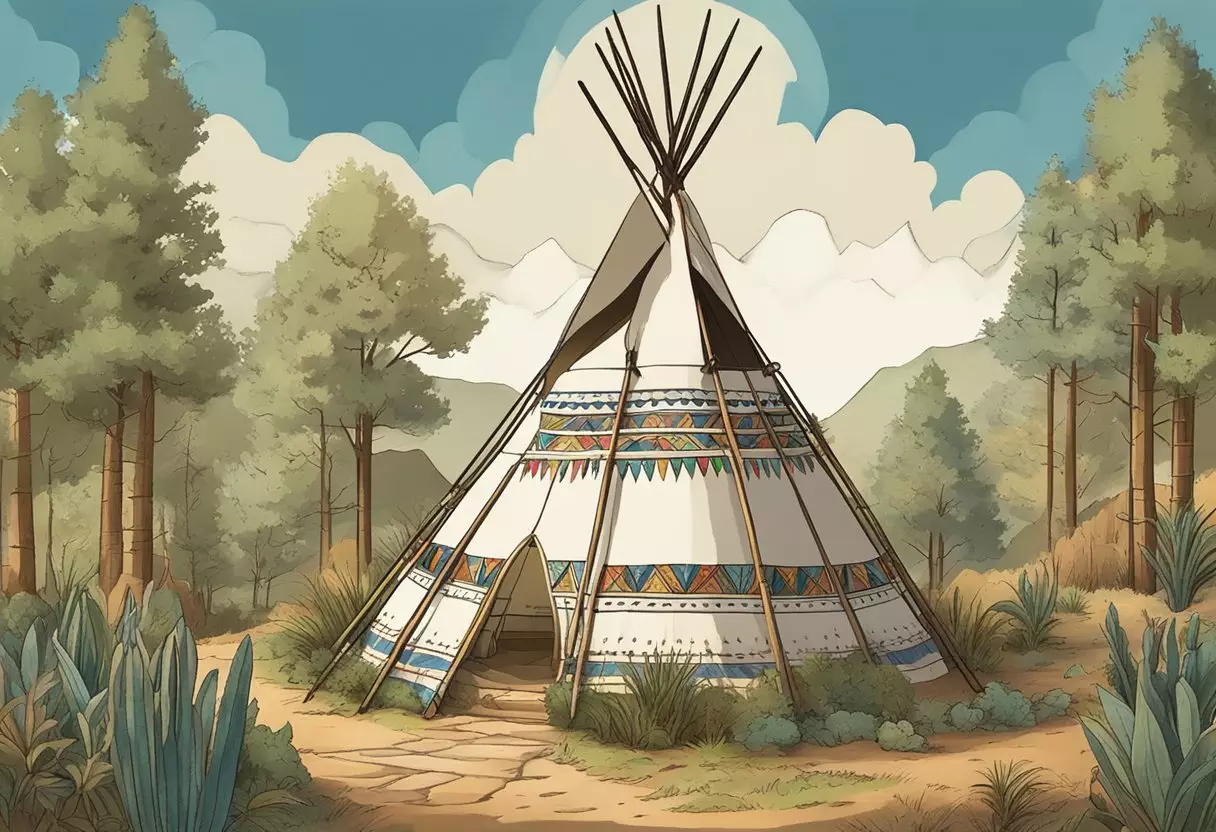Baby Name Dakota: Choosing a Name with Cultural Significance
When you’re browsing through baby names for your soon-to-arrive bundle of joy, the name “Dakota” might capture your attention. With its Native American origins, Dakota translates to “friendly one” or “ally” and brings with it a sense of warmth and openness. This name has enjoyed popularity as a gender-neutral option, fitting a contemporary trend that favors versatility and inclusivity in naming.

Choosing a name like Dakota can give a nod to the cultural richness of Native American history while embracing a modern, approachable vibe. Your little Dakota could share their name with both a Northern Mississippi valley Native American people, underlining the importance of identity and heritage, and be synonymous with the place name of two U.S. states, hinting at the vast and varied American landscape.
Table of Contents
The Origin and Meaning of Dakota
When you choose the name Dakota for your baby, you’re selecting a name with deep Native American roots and a meaning that reflects a sense of community and friendship.
Native American Roots
The name Dakota holds significant cultural importance. It is derived from the Sioux term that denotes “friends” or “allies.” The Sioux people, a group native to the North American plains, embody the core values that the name Dakota signifies.
Etymology and Usage
Historically, Dakota was used to call the Sioux tribes of the northern Mississippi Valley. You’ll find that the name’s popularity began growing in the latter half of the 20th century, becoming a unisex name that symbolizes camaraderie and a connection to the land. The name is intertwined with feelings of friendship and unity in Native American culture.
Gender Neutrality and Popularity

When you’re considering the name Dakota for your little one, you’re looking at a choice that stands out for its gender neutrality and shifts in popularity. This name has been embraced for both boys and girls, making it a truly unisex option.
Dakota as a Unisex Name
The name Dakota has a rich history as a gender-neutral name. Originally derived from the Dakota Sioux tribe, meaning “friend” or “ally,” it’s a name that carries a sense of community and inclusion. Its use for nearly equal numbers of boys and girls is a testament to its versatility. Whether you are expecting a girl or a boy, Dakota can be an equally fitting choice, reflecting a sense of strength and cultural depth.
Trends in Baby Naming
In recent years, the trend toward unisex names has gained momentum. Parents are increasingly searching for names that allow individualism and freedom from traditional gender roles. The popularity of the name Dakota has fluctuated over time, but it remains a solid example of this shift. For instance, it has been a popular name for baby girls, while also maintaining a strong presence as a boy’s name. It’s important to note its surge in popularity for boys starting in the mid-1980s, with its gender-neutral appeal enduring in the years since.
Cultural Significance and Famous Dakotas

When exploring the name Dakota, you’ll find it intertwined with cultural roots and the recognition it has received through public figures. This name has left a mark through its original significance and the celebrities who share it.
Impact of Namesakes
The name Dakota originates from the Native American Dakota people, denoting “friend” or “friendly one”. Its usage as a first name reflects an appreciation for cultural depth and heritage. However, this choice can be controversial, with discussions around cultural appropriation versus honor.
Dakotas in Popular Culture
-
Dakota Fanning emerged as a talented young actress in early 2000s, shaping the name as vivacious and memorable. Her performances in movies like “I Am Sam” and “War of the Worlds” have made her a familiar face.
-
Dakota Johnson, recognized for her role in the “Fifty Shades” film series, adds a contemporary allure to the name. Her rising fame contributes to the name’s popularity in recent years.
Both in the realm of cinema and within society, the name Dakota has become synonymous with success, creativity, and depth, making it a choice that you might associate with charisma and talent.
Naming Considerations and Variations
When choosing the name Dakota for your baby, you’ll want to consider how it is pronounced, spelled, and the variations that exist. Additionally, think about how it pairs with potential sibling names.
Pronunciation and Spelling
Pronunciation: Dakota is generally pronounced as /dəˈkoʊtə/, which has three syllables da–ko–ta. The emphasis is on the second syllable, “ko.”
-
Spelling Variations: The most common spelling is Dakota. However, alternative spellings include Dakotah and Dakoda.
-
Short Forms: Common nicknames or shortened forms of Dakota include Dak and Kota.
Alternative Names and Sibling Pairings
-
Sibling Names: When thinking about matching sibling names, consider those that complement the style of Dakota:
- For Girls: Savannah, Cheyenne, Sierra, Montana
- For Boys: Austin, Denver, Hunter, Logan
-
Names Similar to Dakota: Should you be interested in names like Dakota, consider:
- Similar Feel: Phoenix, Dallas, Indiana, Jordan
Using these considerations can help you find the perfect name that fits with Dakota. Whether you lean towards the classic spelling or a unique variation, Dakota offers plenty of opportunities for personalization and sibling name harmony.
Social Perspectives and Controversies
The name Dakota carries both cultural significance and controversy in its use as a baby name. Your perspective on it might vary depending on your understanding of its origins and the varying views within the community.

Opinions on the Name Dakota
The term Dakota signifies “friendly one” in the Native American Sioux language, a fact recognized by many. You’ll find that community reactions are mixed toward its use as a name. While adopting the name Dakota can be seen by some as a gesture of respect and admiration for Native American heritage, others view it as cultural appropriation. This is particularly sensitive since Dakota refers to an indigenous tribe of the United States, associated with the states of North Dakota and South Dakota.
Discussion on Place Names as Baby Names
Using place names as baby names isn’t uncommon in the United States and beyond. However, when such names are deeply connected to the identity and history of an indigenous community, debates arise. For instance, both North Dakota and South Dakota carry a legacy that intertwines with the land and its original inhabitants. Deciding to use such a name raises questions about respect for a culture that is not one’s own versus the desire to choose a name that signifies friendship and a friendly demeanor. It is essential to navigate this carefully to honor the significance of the place and the voices of the indigenous communities connected to it.
